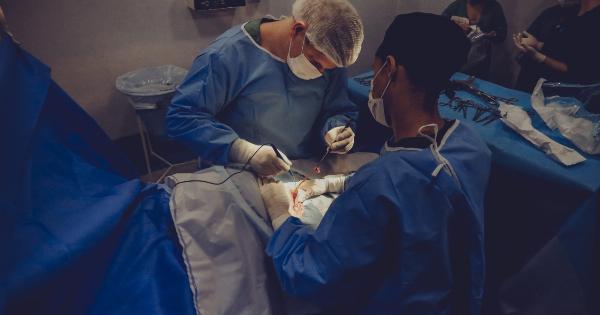Obesity is a growing epidemic worldwide, with alarming rates of prevalence that have prompted the medical community to seek effective solutions.
Bariatric procedures, including gastric bypass and gastric sleeve surgery, have emerged as popular and effective weight loss options for individuals struggling with obesity. While these procedures can provide significant health benefits and improve quality of life, it is essential to recognize the potential complications associated with these surgeries.
Complications post-bariatric surgery are more common than many people realize, and it is crucial for patients and healthcare providers to understand and address these risks.
Understanding Bariatric Procedures
Bariatric procedures aim to reduce the size of the stomach or alter the digestive tract to promote weight loss in individuals who have not been able to achieve significant weight loss through traditional methods such as diet and exercise.
Gastric bypass involves dividing the stomach into a smaller upper portion and a larger lower section, with the small intestine then rerouted to connect to the smaller stomach pouch. This limits the amount of food that can be consumed and reduces the absorption of nutrients. Gastric sleeve surgery, on the other hand, involves the removal of a large portion of the stomach, leaving a smaller, sleeve-shaped stomach.
Potential Complications after Bariatric Surgery
Although bariatric surgeries have shown promising results for long-term weight loss and improvement in obesity-related health conditions like type 2 diabetes and hypertension, they are not without risks.
Complications can arise during or after surgery, and it is important for patients to be aware of these potential issues. Some of the common complications associated with bariatric procedures include:.
1. Infection
Infection is a possible complication that can occur after any surgical procedure, including bariatric surgery. Infections may develop at the site of incision or in the abdominal cavity.
While measures such as prophylactic antibiotics are taken to prevent infections, proper wound care and close monitoring are essential to identify and treat infections promptly.
2. Bleeding
Bleeding is another potential complication that can occur during or after bariatric surgery. It can result from damage to blood vessels during the procedure or from delayed bleeding after the surgery.
Excessive bleeding may require surgical intervention to stop the bleeding and ensure patient safety.
3. Deep Vein Thrombosis (DVT) and Pulmonary Embolism (PE)
Deep vein thrombosis refers to the formation of blood clots in the deep veins, usually in the legs. These blood clots can travel to the lungs and cause pulmonary embolism, a potentially life-threatening condition.
Bariatric surgery can increase the risk of developing DVT and PE due to prolonged bed rest, altered blood flow, and other factors. Early ambulation and appropriate preventive measures, such as blood thinners, can help reduce the risk of these complications.
4. Leaks or Fistulas
Leakage from the surgical connections made during bariatric procedures is a serious complication that may lead to infection, peritonitis, or other severe complications.
Leaks typically occur as a result of insufficient healing of the surgical site or excessive pressure on the newly formed connections. Recognizing the signs of leaks and early intervention play a crucial role in preventing further complications.
5. Strictures
Strictures refer to the narrowing of the gastrointestinal tract after bariatric surgery. They can occur at the surgical connections or anywhere along the digestive tract.
Strictures may cause difficulty swallowing, nausea, vomiting, and other digestive symptoms. Some strictures can be managed with endoscopic procedures, while others may require surgical intervention.
6. Gastroesophageal Reflux Disease (GERD)
GERD is a condition characterized by the backward flow of stomach acid into the esophagus, causing heartburn, regurgitation, and other symptoms.
Bariatric procedures can worsen or trigger GERD in some individuals due to changes in the anatomy or increased pressure in the stomach. Medications and lifestyle modifications can often help manage GERD symptoms post-bariatric surgery.
7. Malnutrition and Vitamin Deficiencies
After bariatric surgery, individuals often experience changes in their nutrient absorption, which can lead to malnutrition and vitamin deficiencies.
The reduced size of the stomach or alterations in the digestive tract can limit the intake and absorption of essential nutrients. Regular monitoring of nutritional status and appropriate supplementation are essential to prevent deficiencies and ensure optimal health.
8. Dumping Syndrome
Dumping syndrome occurs when food moves too quickly from the stomach to the small intestine. This rapid transit can cause symptoms such as nausea, abdominal pain, diarrhea, and lightheadedness.
It commonly occurs after gastric bypass surgery due to the altered anatomy that bypasses a significant portion of the stomach and small intestine. Dietary modifications and lifestyle changes can help manage dumping syndrome symptoms.
9. Gallstones
Gallstones can develop after bariatric surgery, particularly in individuals who rapidly lose weight.
Gallstones may not cause symptoms in all patients, but they can lead to severe pain and complications such as gallbladder inflammation or blockage of the bile ducts. Regular monitoring and preventive measures, such as medication or surgical removal of the gallbladder, may be necessary in some cases.
10. Psychological Issues
Bariatric surgery can have a significant impact on a person’s emotional and psychological well-being.
While many individuals experience improved self-esteem and mental health after successful weight loss, some may face challenges such as body image dissatisfaction, disordered eating, or depression. Adequate pre-operative psychological evaluation and ongoing mental health support are crucial for comprehensive post-operative care.
The Importance of Understanding Risks and Complications
Recognizing the potential complications associated with bariatric surgery is crucial for patients considering these procedures. It allows individuals to make informed decisions and discuss the potential risks with their healthcare providers.
Moreover, healthcare professionals need to be aware of these complications to provide timely intervention and appropriate post-operative care. Enhanced patient education, close monitoring, and thorough pre-operative evaluation can significantly contribute to minimizing complications and optimizing the benefits of bariatric surgery.




























